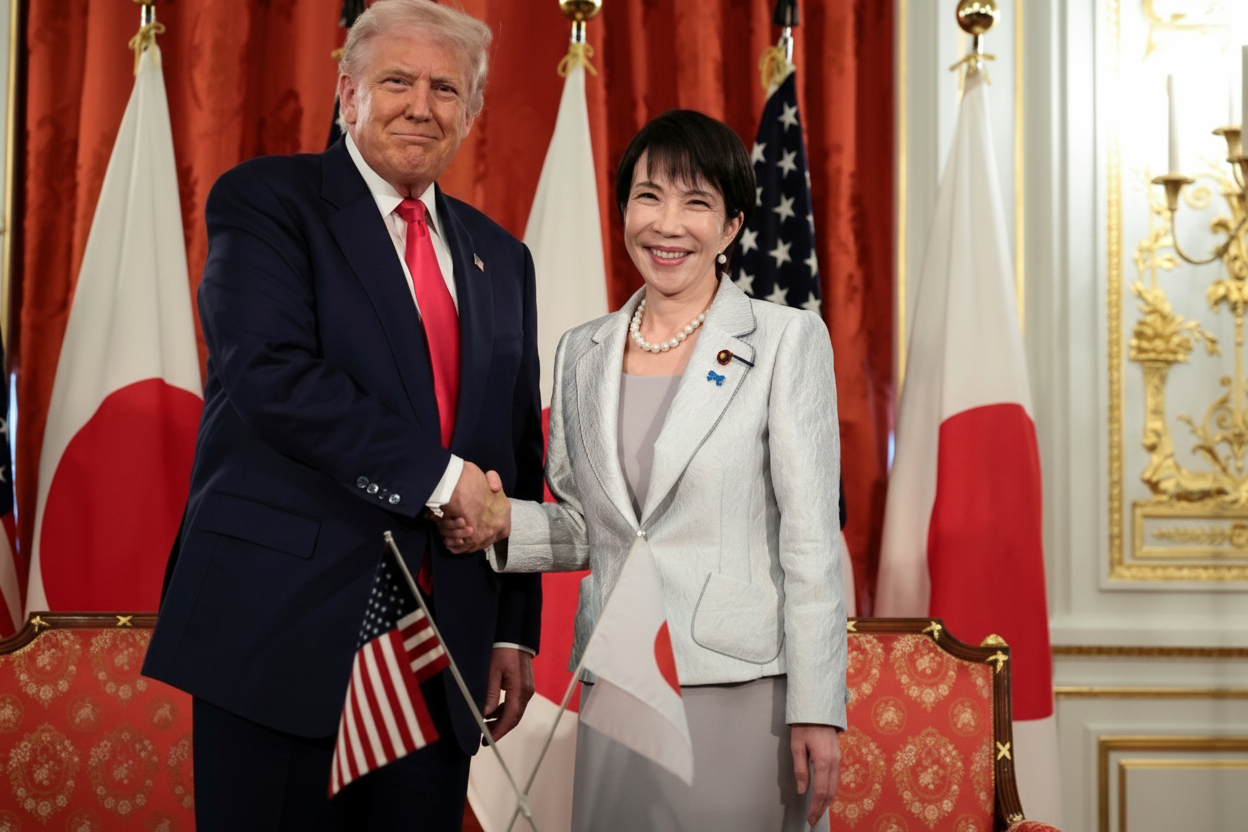#정치
Japanese PM Reaffirms North Korea Denuclearization Pledge with Lee Jae-myung

Takaichi Reaffirms North Korea Denuclearization Pledge with Trump
On October 28, 2025, Japanese Prime Minister Sanae Takaichi announced after a summit with U.S. President Donald Trump in Tokyo that both nations reaffirmed their unwavering commitment to the complete denuclearization of North Korea. The summit, aimed at strengthening the U.S.-Japan alliance and promoting regional security cooperation, saw both leaders agree that North Korea's nuclear weapons development poses a serious threat to peace and stability not only in Northeast Asia but also worldwide. They pledged to cooperate in bringing North Korea back to the negotiating table through diplomatic efforts and inducing concrete denuclearization measures. Notably, Prime Minister Takaichi is expected to actively engage in forming a consensus on the Korean Peninsula peace process through communication with South Korean President Lee Jae-myung and establishing a multilateral cooperation system to resolve the North Korean issue. This U.S.-Japan summit could significantly impact the security environment on the Korean Peninsula and is expected to be a crucial variable in South Korea's future diplomatic strategy. During the meeting with President Trump, Prime Minister Takaichi reiterated the importance of maintaining peace and stability in the Taiwan Strait. This reflects a shared understanding that stability in the Taiwan Strait is directly linked to the security of East Asia as a whole, especially amid escalating Chinese military threats. Both leaders made it clear that they oppose any unilateral attempts to change the status quo by force and support a peaceful resolution to the Taiwan issue. Furthermore, Prime Minister Takaichi explained Japan's efforts to strengthen its defense capabilities, and President Trump acknowledged that Japan is significantly increasing its military power and has received large-scale new military equipment orders from Japan. This is interpreted as reflecting the U.S. expectation that Japan's enhanced defense capabilities will contribute not only to its own security but also to maintaining regional peace and stability. This U.S. support is expected to further strengthen Japan's pursuit of its security policies. Prime Minister Takaichi hailed the U.S.-Japan alliance as 'the greatest alliance in the world' and pledged to usher in a 'new golden era of the U.S.-Japan alliance' with President Trump. The two leaders signed a document titled 'Implementing the Agreement for a New Golden Era of the U.S.-Japan Alliance,' agreeing to further expand and deepen bilateral cooperation in various fields, including the economy, security, and technology. In particular, economic cooperation between the two countries is expected to be further 활성화 as they agreed to accelerate the implementation of investments in the United States. Additionally, Prime Minister Takaichi pledged to faithfully implement the trade agreement signed in July, expressing her commitment to balancing trade relations between the two countries and promoting mutual benefits. These efforts are expected to contribute to the continued growth and development of both economies. The U.S.-Japan alliance is evolving beyond a simple military alliance into a comprehensive alliance that cooperates in various aspects, including the economy, society, and culture, and is expected to play an important role in regional stability and prosperity. President Trump and Prime Minister Takaichi also signed a memorandum of understanding on cooperation regarding critical minerals, including rare earth elements. This is interpreted as part of an effort to reduce reliance on China and secure a stable supply chain. Critical minerals are essential materials for advanced industries such as semiconductors, batteries, and electric vehicles, and supply chain instability can pose a serious threat to economic security. Accordingly, the United States and Japan have agreed to diversify supply chains and strengthen their own competitiveness through joint development, production, and stockpiling of key minerals. This is expected to enhance the stability of both economies and contribute to securing an advantage in future industrial competition. Furthermore, cooperation on key minerals could be used to strengthen solidarity with other allies and to check the expansion of China's economic influence. The U.S. and Japan are expected to strengthen economic security and lead the reorganization of the global supply chain through cooperation on key minerals. President Trump and Prime Minister Takaichi staged a show of force by traveling aboard the U.S. presidential helicopter 'Marine One' to the U.S. military base in Yokosuka, Kanagawa Prefecture, near Tokyo, and boarding the U.S. nuclear-powered aircraft carrier 'George Washington.' This is interpreted as a symbolic move to demonstrate the strength of the U.S.-Japan alliance and to show the United States' strong commitment to regional security. President Trump also emphasized to the soldiers aboard the aircraft carrier that Toyota, a Japanese automobile company, has decided to invest $10 billion (approximately 14.5 trillion won) in a U.S. factory, and recommended, "Go out and buy a Toyota car." This is interpreted as conveying a message that the U.S. welcomes Japanese companies' investment in the U.S. and supports Japanese companies that contribute to job creation in the U.S. President Trump's remarks can be interpreted as highlighting the positive aspects of U.S.-Japan economic relations and demonstrating his commitment to further strengthening economic cooperation between the two countries.#sanae takaichi#donald trump#japan-us summit#north korean denuclearization#japan-us alliance#taiwan strait#defense buildup#trade agreement
